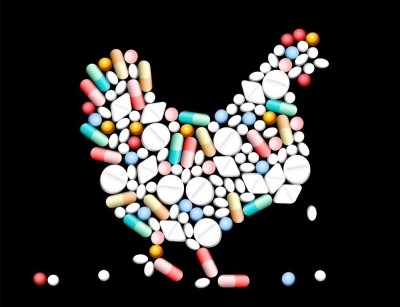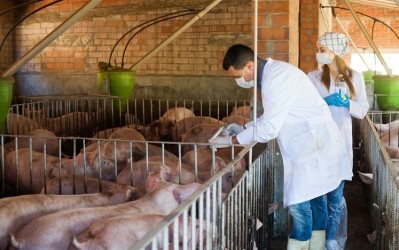EFSA rules out antibiotic resistance concerns for additive

The additive is a preparation containing viable cells of L. diolivorans DSM 32074. It has not been previously authorized as a feed additive in the EU
The additive is intended to improve the ensiling process at a minimum proposed dose of 1.0 x 108 colony forming units (CFU)/kg fresh material.
The European Food Safety Authority (EFSA) said the species, L. diolivorans, is considered by EFSA to be suitable for the qualified presumption of safety (QPS) safety assessment method.
“This approach requires the identity of the strain to be conclusively established and evidence that the strain does not show resistance to antibiotics of human and veterinary importance,” said the Authority in an opinion.
“As the identity of the strain has been clearly established and as no antibiotic resistance of concern was detected, the use of the strain as a silage additive is considered safe for livestock species, for consumers of products from animals fed the treated silage and for the environment,” concluded the Parma based risk assessor.
The Authority found Lactobacillus diolivorans DSM 32074, added at 1.0 x 108 CFU/kg forage, has the potential to extend the aerobic stability of silage prepared from easy, moderately difficult and difficult to ensile material.
Approval for xylanase additive
And a DSM enzyme produced with a new production strain has also been deemed safe and efficacious by EFSA.
The feed additive, RONOZYME WX, is a preparation of endo-1,4-beta-xylanase produced with a genetically modified strain of Aspergillus oryzae, currently approved for poultry for fattening, weaned piglets and pigs for fattening.
It is said to improve the digestibility of wheat, rye, triticale, barley and cereal by-products, and results in better-performing poultry and swine. Producer, DSM, said the additive is used for both intestinal viscosity reduction and nutrient release from cereals and cereal by-products.
The company had requested to change the enzyme’s production strain.
EFSA found the manufacturing process and the composition of the additive have not been modified and, therefore, it said the formulations of the additive remain as those previously reported.
The new production strain derives from the same parental strain as the previous one and harbors the same xylanase gene, but the sequence of genetic modifications is different, according to the opinion.
The safety of the recipient strain was previously evaluated by EFSA.
Its FEEDAP panel concluded that the enzyme, manufactured with the new production strain, does not give rise to safety concerns with regard to genetic modification.
Neither the production strain nor its recombinant DNA was detected in the fermentation product used to formulate the additive, said the panel.
Based on tolerance and efficacy studies performed with the additive obtained with the previous production strain, the panel found the additive is safe for poultry for fattening at 200 FXU/kg feed and in weaned piglets and pigs for fattening at 400 FXU/kg feed.
It also concluded the enzyme was efficacious in poultry species for fattening at 100 FXU/kg feed and in weaned piglets and pigs for fattening at 200 FXU/kg.
“Based on toxicological studies performed with the fermentation product obtained with the new production strain, the Panel concluded that there is no reason for concern for consumer safety arising from the use of the product as a feed additive,” said the EFSA experts.














